Vegetative reproduction to preserve ancient trees native to Mexico, Myanmar
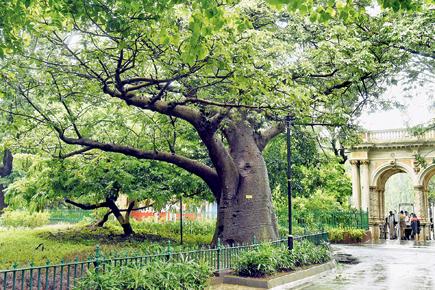
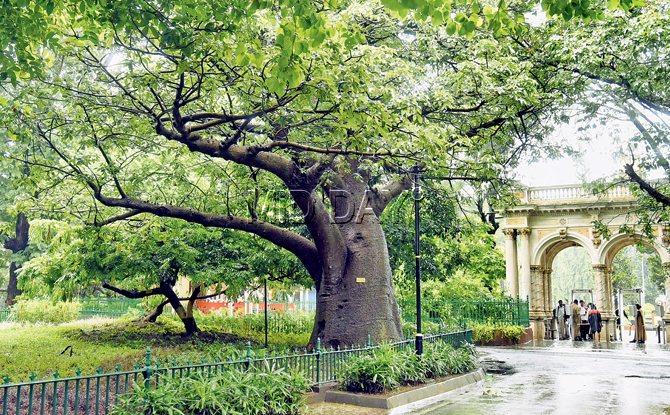
The Baobab tree at the entrance of the Byculla Zoo is said to be at least 150 years old
Desperate to save the city's rare trees, some of which are threatened by extinction, the Brihanmumbai Municipal Corporation's (BMC) Garden Department, is attempting the somewhat tough feat of cloning. Veermata Jijabai Bhosale Udyan and Zoo is spread over 53 acres and is a grade II heritage botanical garden. Located in the heart of the city, it houses 3,213 trees according to the Save Rani Baug Botanical Garden Foundation.
ADVERTISEMENT
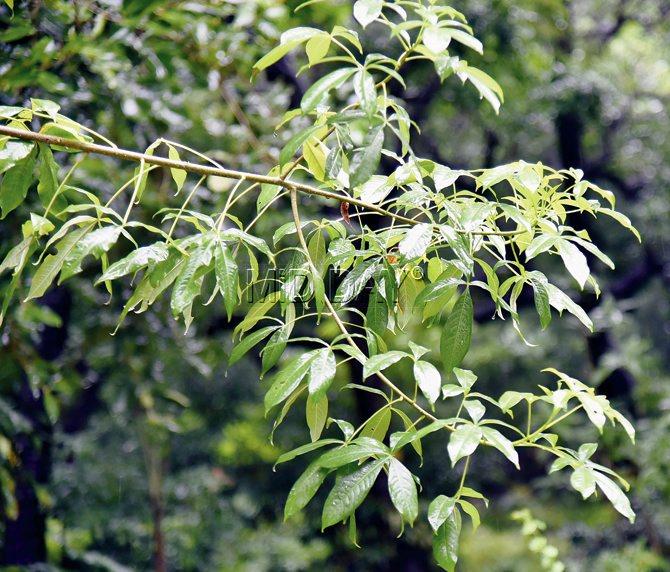
A successfully cloned Baobab sapling. Pics/Shadab Khan
Assistant horticulturalists – Pravin Mhavale, Purushottam Gorade and Devendra Jogiya –have been trying vegetative reproduction techniques or cloning to keep some species of rare trees alive, using air layering, grafting and budding.
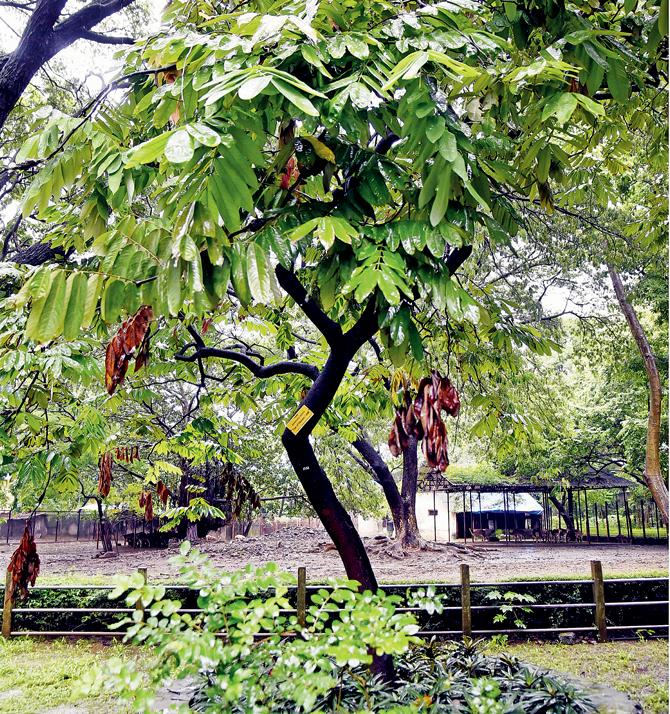
The Tree of Heaven or Urvashi Tree is a native of Myanmar
The rare trees include Krishna Vad, Baobab, Roze of Venezuela, Tree of Heaven, Gustavia Insignis and Crescentia Cujete also known as Beggar's Bowl.
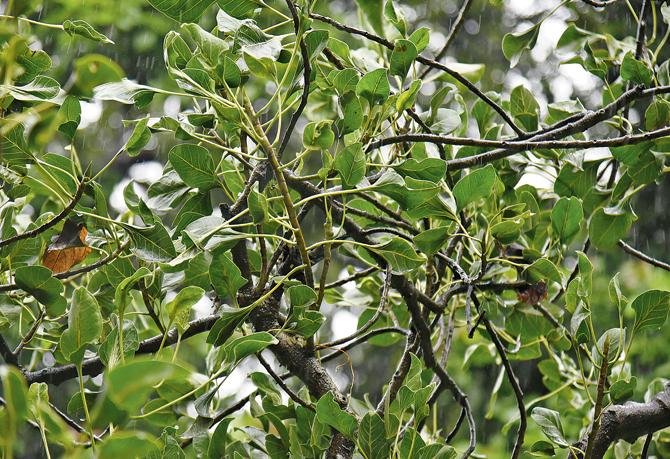
The Krishna Vad
Explaining their effort, Mhavale said, "For Gustavia Insignis and Tree of Heaven, we are using the air layering technique. These trees are not native to the city, so creating a new sapling is a huge challenge as the survival rate is not very high. Similarly, with the help of seeds we have successfully created two samples of the Baobab tree, which is a native of Africa." While Gustavia Insignis is an American native, Tree of Heaven is a native of Myanmar.
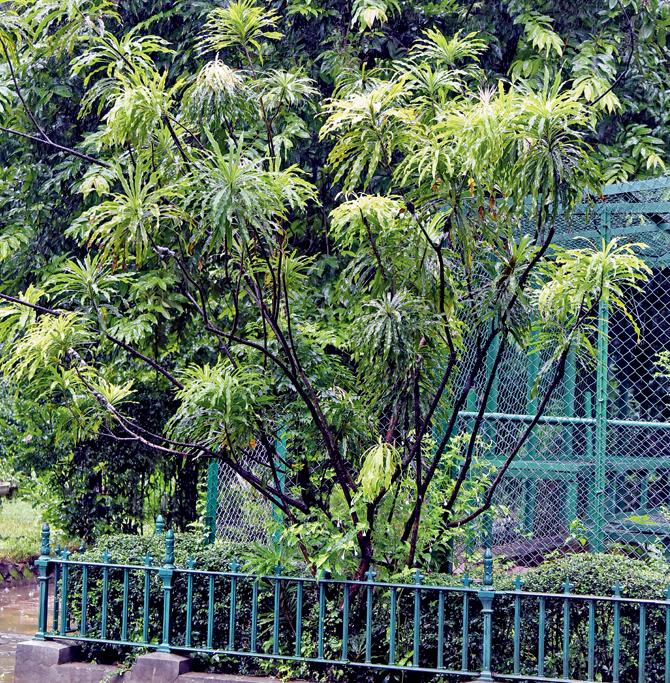
The Gustavia tree at Byculla Zoo to be cloned by experts
He added, "To save the rare Krishna Vad, we have used the grafting-cloning technique. There is only one such tree left in Mumbai, at the Byculla Zoo." Krishna Vad, also known as Krishna Butter Cup, has a unique feature – the leaves have pocket-like folds at the base.
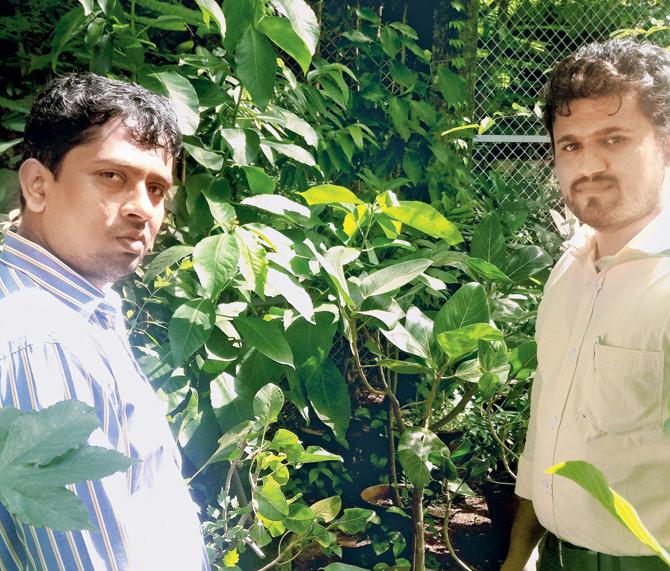
The experts Devendra Jogiya (left), Pravin Mhavale
About the Baobab tree, Purushottam Gorade said, "The Byculla Rani Baug has one of the city's oldest Baobab tree right at the entrance. There is no data available on how old this tree is but some think it could date back to 1861 when the zoo and garden were set up. The baobab tree is known to survive for a maximum of 2,000 years.

Purushotam Gorade
Speaking to mid-day, Superintendent of the Garden Department, Jeetendra Pardesi said, "Rani Baug has a rich biodiversity in terms of trees and plants. The idea is to preserve rare trees. If we don't do something now, they will be lost. Since a zoo revamp is in the works, we have instructed the authorities to ensure the safety of all trees is maintained."
Trees of life
Krishnavad: The leaves have pocket-like folds at the base. Krishnavad comes from the Banyan family. Its botanical name is Ficus Bengalensis.
Baobab: Baobabs (Adasonia Digitata) live up to 2,000 years and are native to Africa. They are believed to have been brought to India during the Portuguese rule.
Roze of Venezuela:âu00c2u0080u00c2u0088Roze of Venezuela is a flowering tree from the tropical regions of Africa and Asia. It belongs to the bean family and has rich, showy flowers and ornamental foliage. Its botanical name is Brownea Coccinea.
Tree of Heaven: It's native to Myanmar with flowers that seem to hang upside down. Due to their uniqueness, it is also known as Urvashi. Its botanical name is Amherstia Nobillis
Gustavia Insignis: These rare trees were introduced to Mumbai from the original at Kolkata's Agri Horticultural gardens.
Crisenstia Cujete: This flowering plant is native to Mexico and Costa Rica. It is also known as Beggar's Bowl and has cannonball like fruit.
 Subscribe today by clicking the link and stay updated with the latest news!" Click here!
Subscribe today by clicking the link and stay updated with the latest news!" Click here!







